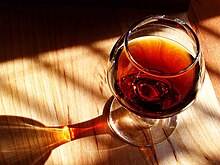CAREERS IN THE SCIENCE
Chemical Engineering
Chemical engineering is a branch of engineering that applies physical sciences (physics and chemistry), life sciences (microbiology and biochemistry), together with applied mathematics and economics to produce, transform, transport, and properly use chemicals, materials and energy. A chemical engineer designs large-scale processes that convert chemicals, raw materials, living cells, microorganisms and energy into useful forms and products.
Chemical engineers are involved in many aspects of plant design and operation, including safety and hazard assessments, process design and analysis, control engineering, chemical reaction engineering, construction specification and operating instructions.
Chemical engineers design, construct and operate process plants

Salary
- According to a recent salary survey by the Institution of Chemical Engineers (IChemE), graduate starting salaries are in the region of £28,500.
- Prospects for higher earnings in the profession are good and median salaries for chartered chemical engineers reach £70,000. Work in certain industries, for example oil and contracting, will attract salaries higher than this.
- Salaries vary according to location, sector, size and the nature of the industry and are dependent on chartered status. Subjects needed are physics, chemistry, biology and mathematics
Wine tasting

Wine tasting (often, in wine circles, simply tasting) is the sensory examination and evaluation of wine. While the practice of wine tasting is as ancient as its production, a more formalized methodology has slowly become established from the 14th century onwards. Modern, professional wine tasters (such as sommeliers or buyers for retailers) use a constantly evolving specialized terminology which is used to describe the range of perceived flavors, aromas and general characteristics of a wine. More informal, recreational tasting may use similar terminology, usually involving a much less analytical process for a more general, personal appreciation. Colour is very important in wine tasting.
Tasting stages
Ready tasting room of port wine in a wine cellar of a producer
The results of the four recognized stages to wine tasting:
· appearance
· "in glass" the aroma of the wine
· "in mouth" sensations
· "finish" (aftertaste)[2]
– are combined in order to establish the following properties of a wine:
· complexity and character
· potential (suitability for aging or drinking)
· possible faults
A wine's overall quality assessment, based on this examination, follows further careful description and comparison with recognized standards, both with respect to other wines in its price range and according to known factors pertaining to the region or vintage; if it is typical of the region or diverges in style; if it uses certain wine-making techniques, such as barrel fermentation or malolactic fermentation, or any other remarkable or unusual characteristics.[3]
Whereas wines are regularly tasted in isolation, a wine's quality assessment is more objective when performed alongside several other wines, in what are known as tasting "flights". Wines may be deliberately selected for their vintage ("horizontal" tasting) or proceed from a single winery ("vertical" tasting), to better compare vineyard and vintages, respectively. Alternatively, in order to promote an unbiased analysis, bottles and even glasses may be disguised in a "blind" tasting, to rule out any prejudicial awareness of either vintage or winery.
= Chef =
A chef is a trained and skilled professional cook who is proficient in all aspects of food preparation of a particular cuisine. The word "chef" is derived from the term chef de cuisine (French pronunciation: [ʃɛf.də.kɥi.zin]), the director or head of a kitchen. Chefs can receive both formal training from an institution, as well as through apprenticeship with an experienced chef.

There are different terms that use the word chef in their titles, and deal with specific areas of food preparation, such as the Sous-chef, who acts as the second-in-command in a kitchen, or the Chef de partie, who handles a specific area of production. The Brigade system is a system of hierarchy found in restaurants and hotels employing extensive staff, many of which use the word chef in their titles. Underneath the chefs are the kitchen assistants. A chef's standard uniform includes a hat called a toque, necktie, double-breasted jacket, apron and shoes with steel or plastic toe-caps.